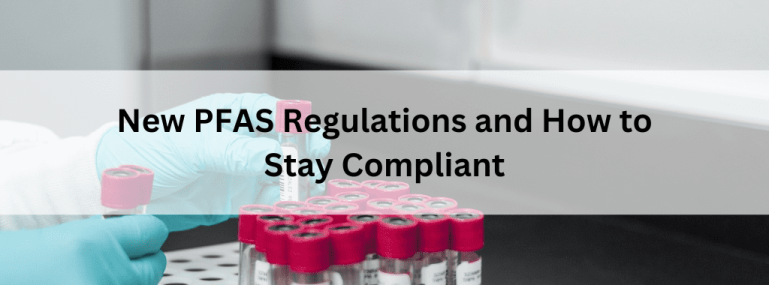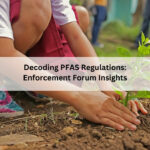Polyfluoroalkyl substances (PFAS) are collectively known as poly-fluoroalkyl substances. Unlike natural substances, these chemicals are created by humans. Consumer products and industrial products have been containing PFAS substances for decades. Due to their toxicity to humans, animals, and the environment, the substances have come under increasing scrutiny since the early 2000s. To reduce exposure to PFAS, a variety of laws, policies, and regulations have been implemented in the United States and Europe.
Maine legislature banned perfluoroalkyl and poly-fluoroalkyl substances in July 2021. As a result, PFAS was defined broader than those substances listed under the Toxic Substances Control Act (TSCA) of the United States Environmental Protection Agency (EPA). CompTox, the EPA’s list of more than 12,000 PFAS, is instead referred to in the proposed law.
Manufacturers, distributors, and importers of these products in Maine must comply with the law unless an exemption has been granted. In addition to the new law, two provisions go into effect on January 1st, 2023. The following are some of them:
- To comply with federal regulations, manufacturers must report the amount of PFAS in their products. Despite the development of a database by the Department of Environmental Protection (DEP), reporting remains a necessity.
- The sale of carpets, rugs, and fabric treatments containing PFAS is prohibited. We do not include carpets or rugs that have been used.
California Bill AB 1817 prohibits the sale, distribution, or offering for sale of food packaging containing PFAS chemicals. As of January 1st, 2023. The sale and distribution of new products containing PFAS chemicals will be prohibited by July 1, 2023.
Toxic Substances Control Act (TSCA) Section 8(a)(7) is expected to be finalized by the Environmental Protection Agency in 2023. Since 2011, manufacturers and importers have been required to report on how PFAS are used in their products, production volumes, disposal, exposures, and hazards. Over 1,300 PFAS could potentially be covered by this rule, according to the EPA.
By January 2023, five European Union states are expected to submit a proposal restricting all PFAS substances. Additionally, certain perfluoroalkyl carboxylic acids (C9-C14 PFCAs) will be prohibited under EU REACH beginning in February 2023. Additionally, the EU proposes a ban on the use of all PFAS in firefighting foams.
ComplianceXL provides companies with PFAS compliance consulting services as well as vendor PFAS declaration collection services. Moreover, we also provide our customers with regular maintenance services in order to ensure that the certificates and declarations of their suppliers are accurate and current at all times.
FAQs
1.What made the elimination of PFAS so important?
Exposure to PFAS poses a serious threat to human health. There is a global contamination crisis due to it, which fuels biodiversity crises.
2.Why are PFAS widely used in products because of their performance attributes?
Fluorinated polymers have excellent temperature stability, electrical insulation, and flame retardancy. Water-repellent and anti-fogging, fluorinated coatings are available.






